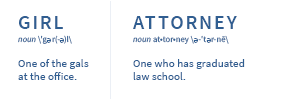From The Guardian authored by Caroline Criado-Perez:
“When broadcaster Sandi Toksvig was studying anthropology at university, one of her female professors held up a photograph of an antler bone with 28 markings on it. “This,” said the professor, “is alleged to be man’s first attempt at a calendar.” Toksvig and her fellow students looked at the bone in admiration. “Tell me,” the professor continued, “what man needs to know when 28 days have passed? I suspect that this is woman’s first attempt at a calendar.”
Women have always tracked their periods. We’ve had to. Since 2015, I’ve been reliant on a period tracker app, which reassures me that there’s a reason I’m welling up just thinking about Andy Murray’s “casual feminism”. And then there’s the issue of the period itself: when you will be bleeding for up to seven days every month, it’s useful to know more or less when those seven days are going to take place. Every woman knows this, and Toksvig’s experience is a neat example of the difference a female perspective can make, even to issues that seem entirely unrelated to gender.
For most of human history, though, that perspective has not been recorded. Going back to the theory of Man the Hunter, the lives of men have been taken to represent those of humans overall. When it comes to the other half of humanity, there is often nothing but silence. And these silences are everywhere. Films, news, literature, science, city planning, economics, the stories we tell ourselves about our past, present and future, are all marked – disfigured – by a female-shaped “absent presence”. This is the gender data gap.
These silences, these gaps, have consequences. They impact on women’s lives, every day. The impact can be relatively minor – struggling to reach a top shelf set at a male height norm, for example. Irritating, certainly. But not life-threatening. Not like crashing in a car whose safety tests don’t account for women’s measurements. Not like dying from a stab wound because your police body armour doesn’t fit you properly. For these women, the consequences of living in a world built around male data can be deadly.”
Read the full story by FOLLOWING THIS LINK

